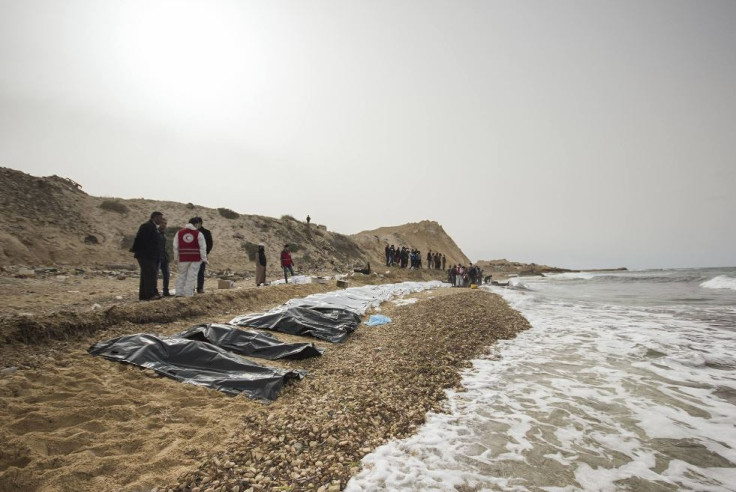Bodies of 74 migrants wash ashore in Libya
More fatalities expected as bodies from dinghy with 110 people on board are recovered on beach.

The bodies of 74 migrants have washed ashore in the western Libyan city of Zawiya, Libya's Red Crescent has said.
The aid organisation's spokesman, Mohammed al-Misrati, told Associated Press the bodies were discovered on the coastline on Monday morning (20 February).
Pictures posted by the agency showed dozens of bodies in black and white body backs lined up along the shore.
Flavio Di Giacomo, a spokesman for the UN's International Organization for Migration (IOM), said the migrants' dinghy departed from the western city of Sabratha on Saturday with 110 people aboard.
A torn rubber boat was found nearby, Misrati said.
Local authorities will take the bodies to a cemetery in the capital, Tripoli, for identification purposes.
It comes after the European Border and Coast Guard Agency last week said there were a record number of drowning deaths in 2016 along the Libya-Italy people smuggling route.
According to its director, Fabrice Leggeri, the number stood at 4,579 for last year. That compares to 2,869 deaths in 2015, and 3,161 in 2014.
There were 228 recorded deaths in January alone – by far the biggest total for the month in recent years. Leggeri said smugglers had grown more bold and reckless, using poor quality vessels.
The post-Gaddafi civil turmoil engulfing Libya has seen the growth of human trafficking gangs, preying on migrants, most of them from sub-Saharan African countries, seeking a better life in Europe.
Earlier this month, EU leaders agreed on controversial new plans designed to help stem the flow of migrants from Libya.
This includes giving Libya's fragile government €200m (£170m, $211m) to step up efforts to stop migrant boats leaving the country's waters. The EU will also set up refugee camps in Libya and help train the local coastguard to coordinate with neighbouring nations.
#Libya: Tragedy again today as #RedCrescent recover bodies of 74 people from a boat washed ashore near #Zawiya#StopIndifference #migration pic.twitter.com/YarPI5mYEG
— IFRC MENA (@IFRC_MENA) February 20, 2017
But aid agencies have criticised the plan. "Libya is not a safe place and blocking people in the country or returning them to Libya makes a mockery of the EU's so-called fundamental values of human dignity and rule of law," said Médecins Sans Frontières, which works in camps there.
Others warned the deal could result in women and children being returned to inhumane conditions.
"Sending children back to a country many have described as a living hell is not a solution," said Ester Asin, a director at Save the Children.
Also critical of the plan was Yves Pascouau, director of migration and mobility policies at the European Policy Centre. He told Al Jazeera: "We all know that if we really want to break this business model, we also need to provide legal ways to enter the EU, which [do not exist] today."
© Copyright IBTimes 2025. All rights reserved.






















